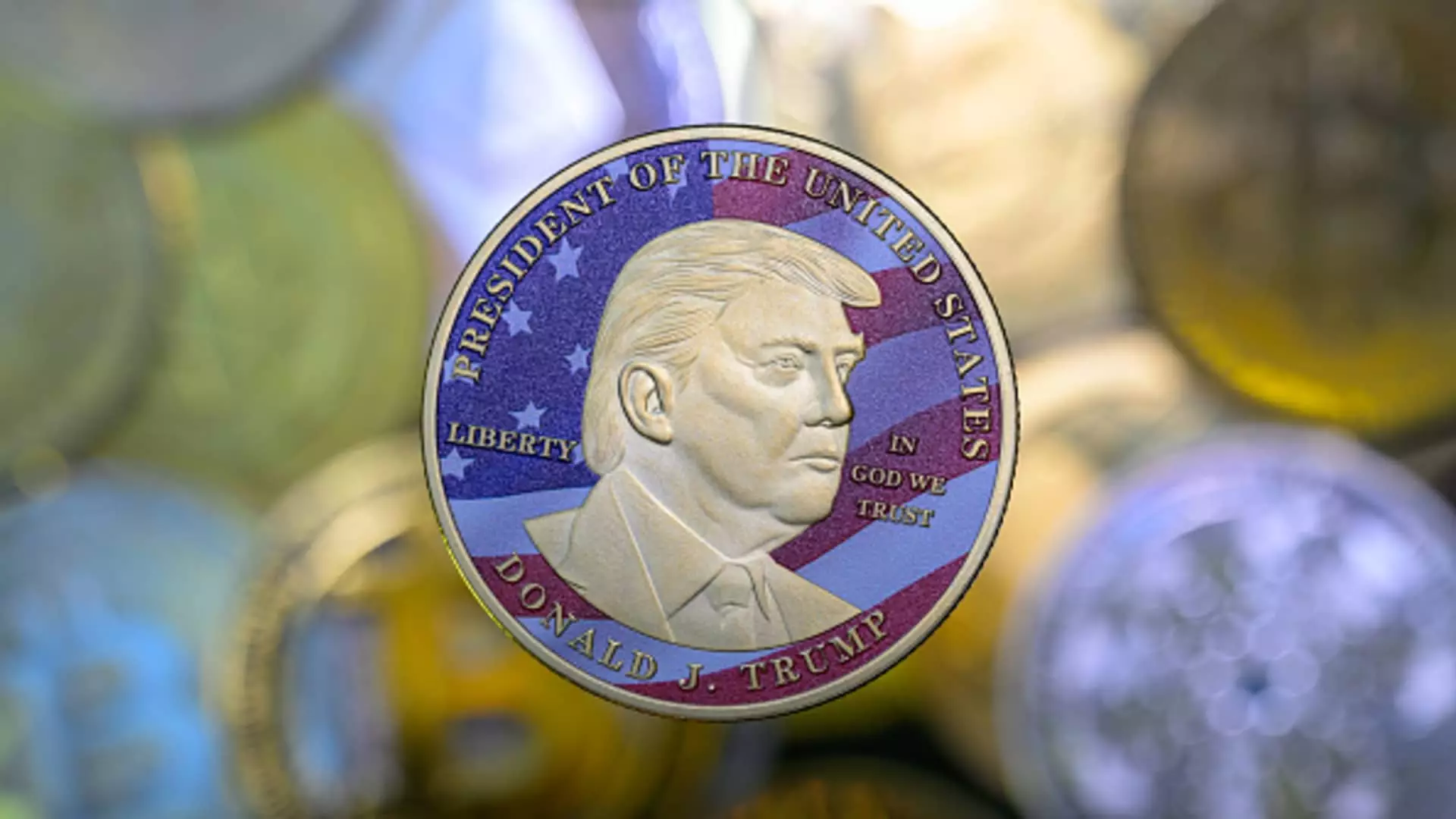In an era marked by the rapid evolution of technology and finance, the introduction of cryptocurrency into the political landscape has raised eyebrows, ignited debates, and, at times, veered into murky waters. The latest development in this regard involves former President Donald Trump and his ventures tied to the $TRUMP meme coin. Senators Adam Schiff and Elizabeth Warren have sent ripples through the political swamp with their demands for an ethics investigation into what they perceive as potential “pay to play” corruption. Their concerns merit scrutiny, not just for their implications for Trump, but for the broader norms governing political office in a democracy.
Trump’s foray into the cryptocurrency world is not merely a bold entrepreneurial maneuver; it raises significant ethical dilemmas surrounding the intertwining of personal profit and political duty. The exposure of a promotional campaign granting exclusive access to Trump for top $TRUMP investors is particularly alarming. Lawmakers have identified this move as potentially indicative of a troubling trend where monetary contributions translate into political power, a notion that should ring alarms for anyone who believes in fair governance.
Behind the Curtain: What’s Really at Stake?
When Schiff and Warren highlighted the staggering jump in the $TRUMP coin’s value following Trump’s dinner invitation, they pointed not only to the potential personal enrichment of the former president but also the risks of corporate and foreign influence in American politics. With investments in cryptocurrencies like $TRUMP reportedly linked to foreign entities and firms banned from operating in the U.S., the conversation around the integrity of our political processes grows increasingly complicated. Their assertion that Trump’s actions could amount to the exchange of presidential influence for financial benefits strikes a chord, calling into question the ethical standards we expect from our leaders.
Consider this: a sitting president offering a dinner invitation to high-paying crypto investors effectively monetizes the office’s prestige and access. Such practices, if left unchecked, could encourage other political figures to engage in similar “pay to play” activities, thus eroding public trust in government institutions. The reality is that while Trump may legally navigate these waters, ethical considerations extend beyond legality; they touch the very core of responsible leadership.
A Political Landscape in Need of Reform
As Schiff and Warren push for an inquiry, it is crucial to examine the existing structures designed to uphold ethical conduct in the political realm. The Office of Government Ethics (OGE) has limited power regarding sitting presidents, often rendering it a toothless agency upon which we rely for accountability. Although past guidance has advised presidents to adhere to ethical standards, the toothless nature of enforcement means that the specter of corruption looms large, particularly for executives drawn into lucrative ventures across industries.
In a system where the president is shielded from many conflict-of-interest laws, the disparity in ethical oversight between the highest office and the rest of the government is stark. If there are channels for personal profit during incumbency, they must be defined, regulated, and enforced to prevent proliferation across the political spectrum. This is critical not just for the integrity of the current officer but for all future leaders who might feel emboldened by a lack of accountability.
Embracing Technology vs. Preserving Democracy
As the lines between private interests and public service blur, we must grapple with the role technology and innovation play in our political discourse. The burgeoning world of cryptocurrencies introduced a new layer of complexity to traditional ideas about governance and ethics. With Trump’s family planning to delve deeper into stablecoins, the ramifications extend beyond his presidency, potentially altering the political landscape for years to come.
It’s a double-edged sword. On one side, cryptocurrencies have democratized access to investment opportunities and innovations in finance. Yet on the opposite side, we must consider how these same assets can amplify the voices of the privileged while silencing average citizens whose interests become secondary in the pursuit of profit. The growing prominence of political figures engaging with digital currencies introduces an urgent need for a critical reevaluation of our ethical frameworks: are they equipped to handle the complexities posed by the digital age?
As we watch Trump’s forays into the realm of cryptocurrency unfold, let’s remain vigilant about the implications for democratic ethics and governance. The combination of finance and politics requires a sophisticated understanding and commitment to integrity, lest we find ourselves navigating an ever-deepening ethical quagmire where money eclipses meaningful governance.

